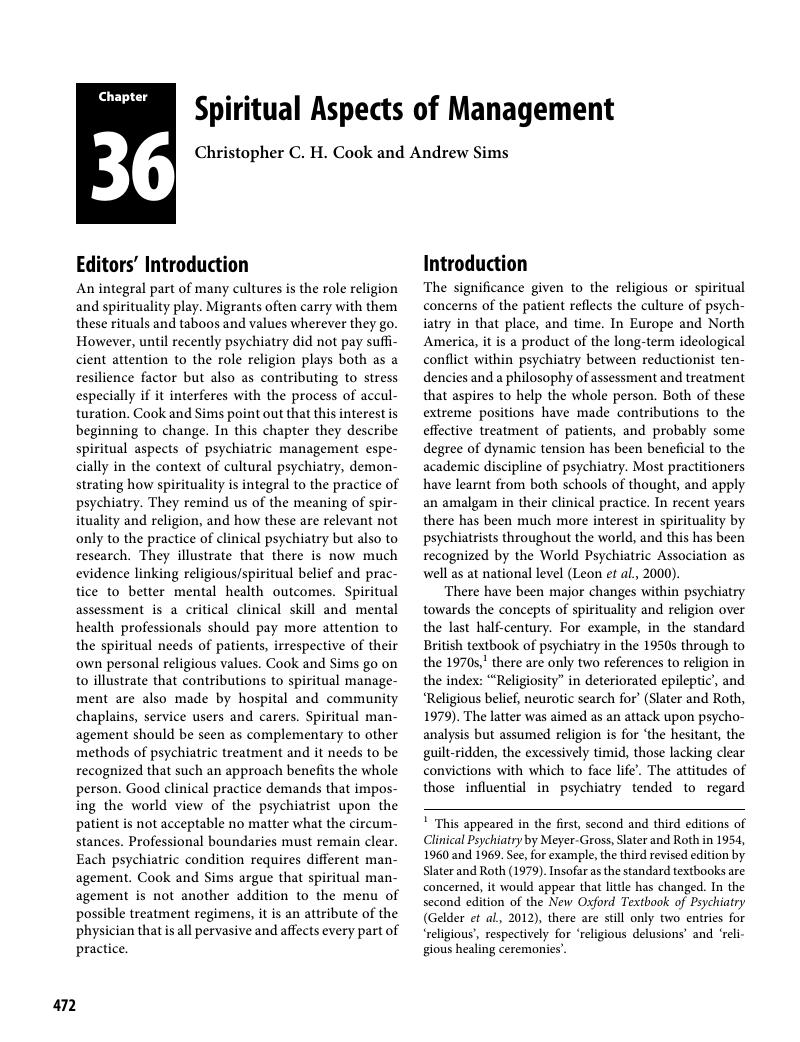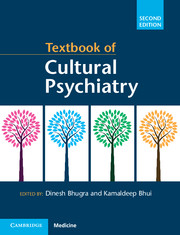Book contents
- Textbook of Cultural Psychiatry
- Textbook of Cultural Psychiatry
- Copyright page
- Dedication
- Contents
- Contributors
- Foreword
- Preface to the Second Edition
- Section 1 Theoretical Background
- Section 2 Culture and Mental Health
- Section 3 Culture and Mental Disorders
- Section 4 Theoretical Aspects of Management
- Chapter 29 Traumascape
- Chapter 30 Sexual Dysfunction across Cultures
- Chapter 31 Therapist–Patient Relationships and Culture
- Chapter 32 Developing Effective Mental Health Services for Multicultural Societies
- Chapter 33 Cross-Cultural Psychopharmacotherapy
- Chapter 34 Psychotherapy across Cultures
- Chapter 35 Psychological Interventions
- Chapter 36 Spiritual Aspects of Management
- Chapter 37 Cultural Aspects of Suicide
- Section 5 Management with Special Groups
- Section 6 Cultural Research and Training
- Index
- References
Chapter 36 - Spiritual Aspects of Management
from Section 4 - Theoretical Aspects of Management
Published online by Cambridge University Press: 16 March 2018
- Textbook of Cultural Psychiatry
- Textbook of Cultural Psychiatry
- Copyright page
- Dedication
- Contents
- Contributors
- Foreword
- Preface to the Second Edition
- Section 1 Theoretical Background
- Section 2 Culture and Mental Health
- Section 3 Culture and Mental Disorders
- Section 4 Theoretical Aspects of Management
- Chapter 29 Traumascape
- Chapter 30 Sexual Dysfunction across Cultures
- Chapter 31 Therapist–Patient Relationships and Culture
- Chapter 32 Developing Effective Mental Health Services for Multicultural Societies
- Chapter 33 Cross-Cultural Psychopharmacotherapy
- Chapter 34 Psychotherapy across Cultures
- Chapter 35 Psychological Interventions
- Chapter 36 Spiritual Aspects of Management
- Chapter 37 Cultural Aspects of Suicide
- Section 5 Management with Special Groups
- Section 6 Cultural Research and Training
- Index
- References
Summary

- Type
- Chapter
- Information
- Textbook of Cultural Psychiatry , pp. 472 - 481Publisher: Cambridge University PressPrint publication year: 2018



